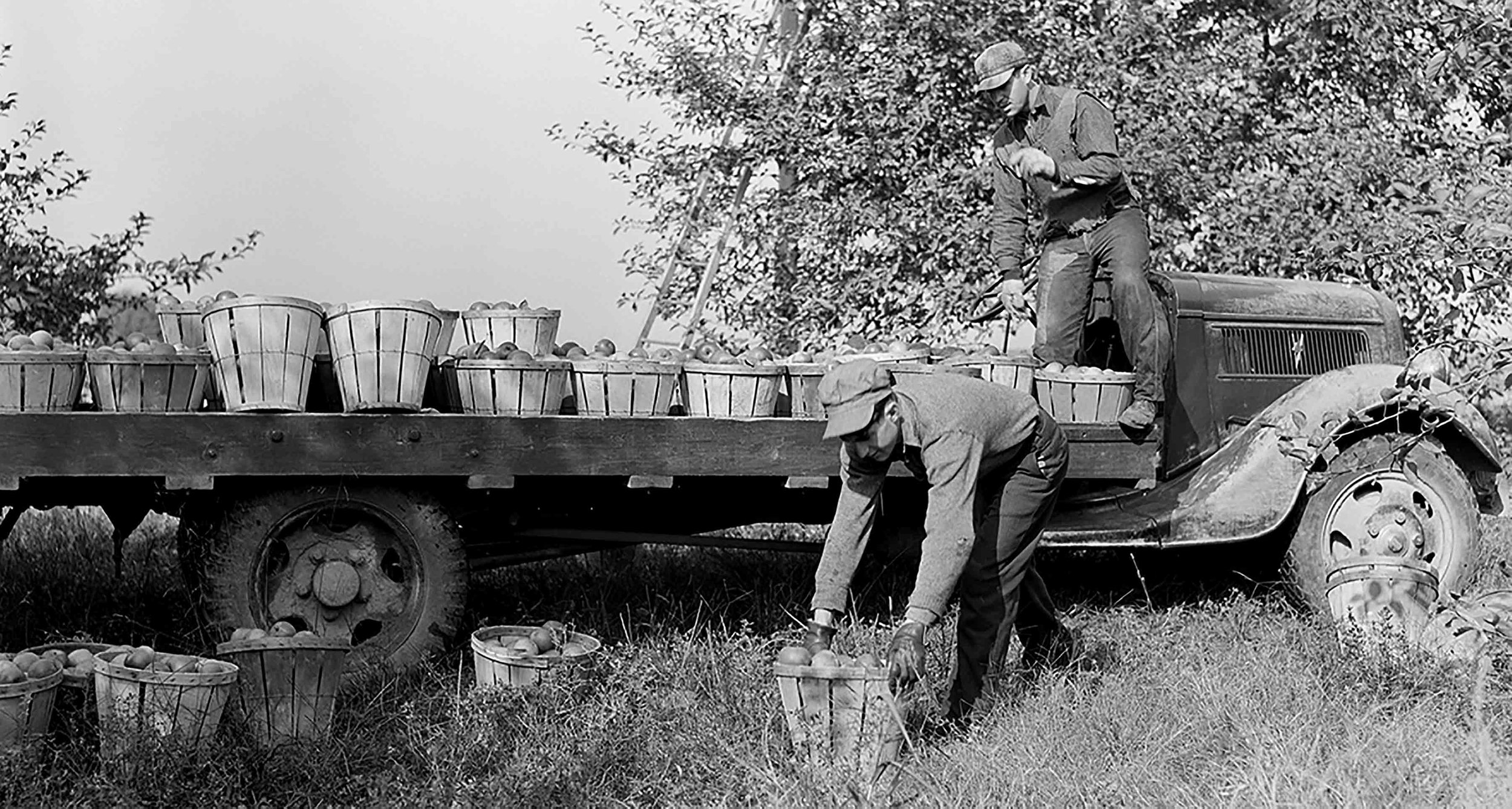
MAINE’s CIDER LEGACY.
We find inspiration in our roots
Hard apple cider was the alcoholic drink of choice in America for over 200 years. Beer & wine were almost unknown in the colonies, as barley and grapes didn't grow well in New England, but apple trees thrived in the local climate.
In the 1700's in Maine, as elsewhere in New England, nearly every citizen was a farmer, and virtually every farm had a small orchard. A 1767 survey in Massachusetts found that hard cider consumption averaged 35 gallons per citizen, including children (who drank a weakened version called ciderkin). If you scaled that to today, it would equal more than 10 billion gallons of cider produced in America...more than 100x the size of today's cider market, and twice the size of the beer market.
There are endless stories of the importance of cider to colonial Americans, from John Adams, who drank a tankard each morning with breakfast, to George Washington, who plied voters with hard cider to win his first election to the Virginia House of Burgesses, to William Henry Harrison, who used the slogan "Log Cabin & Hard Cider" to connect with rural voters en route to winning the presidential election of 1840.
In Albion, Maine, where Freedom's Edge has its orchard, there was once a narrow gauge railroad that ran from the center of town down to Wiscasset, along the coast, where local farmers could ship their apples to market in Boston and New York, as well as across the sea to London. John Bunker, the great apple historian, notes that in 1849 nearly 2/3 of the families in neighboring Palermo, Maine sold apples, making them the most valuable crop in town. And the remaining families grew apples as well, they just kept them on the farm and ate (or mostly drank) them locally. As late as the 1870's, more than 1/10th of the farms in the state had their own cider press, and one of the social highlights of the fall was when farmers gathered to press their apples before they barreled their cider to ferment in their cellars over the winter.
Sometime beginning in the 1840's or 50's, beer began to surpass cider in America. Partly it reflects the migration from farms to cities that gathered pace in the years following the civil war, and new immigrants from central Europe who brought with them traditions of beer brewing. The temperance movement played a part as well. Many cider orchards were destroyed during prohibition, and by the time the ban was lifted, beer displaced cider almost completely. By the 1960's, while there was still some home made cider being enjoyed in some rural parts of Maine and New England, the commercial market for cider totaled scarcely 200,000 gallons per year, compared to nearly 100 million gallons a century before.
In recent years, cider has begun to make a comeback in Maine and elsewhere. Long forgotten cider apple varietals such as Harrison and Kingston Black and Northern Spy and Newtown Pippin have been rediscovered and replanted. As more folks become interested in simpler, more wholesome foods made from locally sourced ingredients, cider is gaining in popularity. There have been a few commercially successful ciders which are much sweeter than traditional ciders, but slowly and surely consumers are finding their way back to the real thing.
Apples grow well in many parts of America, but many observers believe that nowhere do they thrive as well as in Maine. To this day, drive down nearly any country road in the middle of the state in the fall, and you'll find apple trees dotting the roadside. Sometimes they are planted, but more often they grow by chance...either from an apple core thrown out the window of a passing vehicle, or else courtesy of the digestive tract of a wandering deer. No one quite knows why apples like the Maine climate so much, but there is one theory that we like:
Apples came west to Europe (and eventually to America) by way of travels along the Silk Road, which was a series of trading routes extending from southern Europe and the Middle East all the way across to central and east Asia during the Middle Ages. One stop along the route was Almaty, in modern day Kazakhstan. Almaty means, literally, "Father of Apples," and it is the birthplace of Malus sieversii, the species which is the parent of all modern apples. Almaty is at the 44th latitude, as is Albion, Maine, and the two have very similar climates...harsh winters, wet springs, mild summers. Perhaps the apple recognizes Maine as its home away from home?


